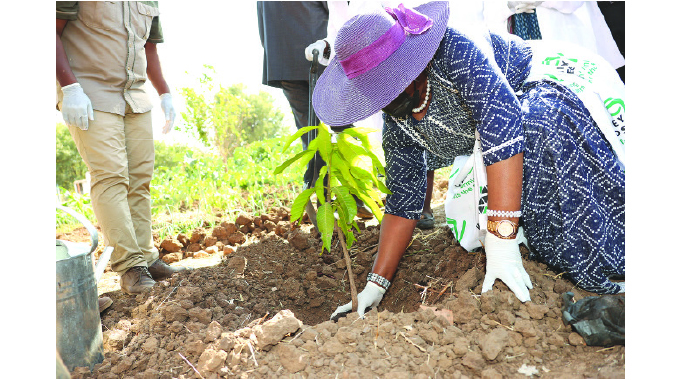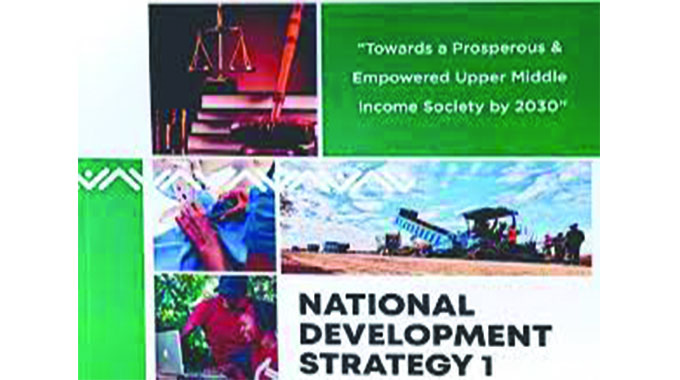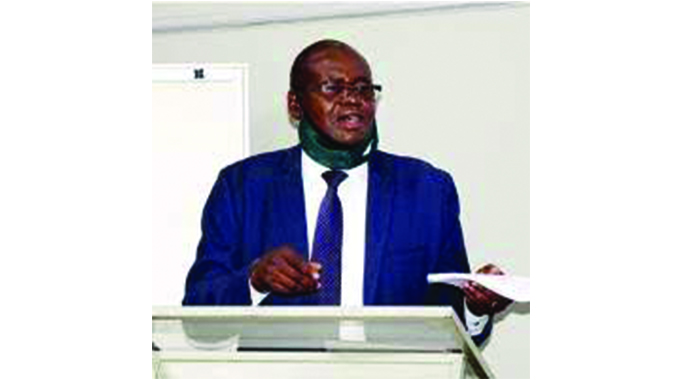
The Sunday News

Tendai Rupapa in Dande
CHADEREKA Business Centre near the border with Mozambique was on Friday left cleaner and airy thanks to environment patron First Lady Dr Auxillia Mnangagwa, who joined hands with hundreds of villagers and stakeholders in cleaning the area and planting fruit trees as she takes pride in creating a clean, safe and healthy environment for the nation.

Environmental patron First Lady Dr Auxillia Mnangagwa plants a mango tree at Chadereka Clinic in Dande near the border with Mozambique on Friday. Pictures: John Manzongo
Since 5 December 2018, President Mnangagwa declared every first Friday of the month National Clean-up Day, where communities, companies and individuals join hands in cleaning up the environment.
Chadereka communal lands is a place on the extreme eastern end of the remote Dande Valley at Zimbabwe’s border with Mozambique, in Muzarabani.
The temperatures were extremely hot but this did not deter the Mother of the Nation from taking the clean-up campaign there and spending time with the communities.
People were awestruck by the First Lady’s hands-on approach as she picked litter and swept the grounds, leaving the business centre spotting a fresh, clean look.
After cleaning, Amai Mnangagwa led the community in planting over 30 fruit trees at Chadereka Clinic.
Planting trees, the First Lady emphasised, should not only be done on National Tree-planting Day, but should be an ongoing exercise.
The clean-up programme, Dr Mnangagwa added, encourages horizontal and vertical co-operation, collaboration, synergies and linkages among stakeholders to keep the environment litter-free and clean for the benefit of all citizens as enshrined in the Constitution.
“Such an arrangement is poised on making a difference in rural service centres, towns and cities with continuous co-operation from across all sectors of the economy and society.
Ladies and gentlemen, this clean-up day comes during the month where we celebrate our heroes of the liberation struggle, both the living and the departed.
Lest we forget, these are the people who sacrificed so much for our hard-won independence, hence it remains priceless to honour them by celebrating Heroes Day in a clean environment,” she said.

President Mnangagwa
The national clean-up programme, in line with President Mnangagwa’s vision, she said, leaves no one and no place behind, hence the visit to Muzarabani was part of shifting focus from towns to growth points and rural service centres.
“This resonates naturally with this era of rapid economic growth we are witnessing through massive infrastructural developments in the country under the Second Republic.
Ladies and gentlemen, considerable efforts have been made towards championing and accelerating the cleaning of the environment agenda, without ignoring expectations of the National Development Strategy 1 (NDS1) on promoting recycling initiatives.

National Development Strategy 1 (NDS1)’
It also remains a global thrust of reducing waste in the environment and landfills as a means towards embracing the circular economy and other green technologies and innovations,” she said.
Amai Mnangagwa encouraged the community to embrace the sorting of waste at source, recovery of material and recycling all in an effort to bring “the zero waste in the environment” aspiration to reality.
The Government, she said, remained committed to promoting initiatives that reduce the impact of climate change and champion economic growth that supported livelihoods in marginalised areas.
The continuous engagement policy by the Second Republic, she added, had seen oil and gas exploration companies like Invictus coming to operate and stimulate growth in Muzarabani.
“On a similar note, we envisage for more similar engagements to bring investment through the recycling frontier. A clean, safe and healthy environment definitely remains the panacea in growing our economy and society as envisioned for 2030.
Ladies and gentlemen, the time to reimagine and rethink our waste management discourse is now.
Gone are the days of following the linear economy in waste management, which entails the generation of waste and disposal.
Now is the time to embrace the circular economy which promotes recycling,” she said.
The environment patron said the world was gradually adopting and adapting to sustainable consumption and production patterns which emphasise on waste minimisation and resource efficiency.
On that note, she added, the nation does not have to be left behind but rather thrive to be part of the creation of this future.
“Poor waste management also impacts on the environment, discharging greenhouse gases that contribute towards climate change. Waste dumps are sources of methane, which is one of the greenhouse gases that fuel climate change.
Coincidentally, Muzarabani is one of the regions in the country which remain vulnerable to climate shocks, hence the need to ensure that we adopt and adapt to best practices in waste management as a weapon against climate change.
Kupiswa kwemasango nekutemwa kwemiti ndizvo zvimwe zvirikusimudza climate change.
Trees are life, so we should protect them. By starting veld fires, we are also killing our animals zvichaita kuti generations to come vazotadze kuziva mhuka dzedu nekuti dzinenge dzapera. As the wildlife ambassador, I am saying ngatisapisei masango,” she said.
Dr Mnangagwa encouraged communities to complement Government efforts in solid waste management by acting responsibly and ensuring zero waste disposal in public and congested areas.
She thanked churches that are participating in the clean-up campaign and bemoaned travellers who throw away litter through the window.
She humbly urged the responsible ministry to see to it that public transport vehicles have bins inside.

Mr Aaron Chigona, the director-general of the Environmental Management Agency (EMA)
Mr Aaron Chigona, the director-general of the Environmental Management Agency (EMA), paid tribute to the First Lady for her work on the environment and waste management.
“We are happy to be here in Muzarabani in August when we are celebrating our heroes and defence forces. The good part of this event is that the patron of the environment, the First Lady, led this campaign.
We are happy that people have come out in their numbers and as a rural set-up, we are saying this is where to take our clean-up campaign. We know that waste in this part of the country affects people’s livelihoods.
If some animals consume litter like plastics, they will die, translating into losses for farmers.
Heaps of litter can also be a breeding site for mosquitoes, thereby affecting the community. The First Lady as the health ambassador also planted several types of fruit trees, thus greening the environment,” he said.
Members of the community could not hide their joy for having spent time cleaning the environment alongside the First Lady. Mrs Enita Keche was at a loss for words.
“I am happy that our mother has remembered us here in Chadereka. We picked litter with the First Lady right up to the clinic so that we may keep diseases at bay. There is serious malaria here and we are happy that Amai has come in this remote part of the country,” she said.
Equally delighted was Mrs Merenzia Mhandu, who said: I am happy for the visit by our mother. She has come to teach us hygiene.
We are very far away from Harare where we never thought she would remember us. Our mother is not selective because though we are in the remote part of the country, she still came to teach us hygiene.
We must then follow what she has taught us as understanding children who know what they are doing, because if we continually lag behind, even the First Lady will become weary. She will be seeing that her efforts will be going to waste.
Therefore, we promise not to let her down. We will keep her teachings close to our hearts. We are pleased greatly in this area of Chadereka, may she continue teaching us going forward so that even in our households we will be living smart. For someone to enter my yard, it will be smart
. Even the growth point where we earn a living must be smart because when you want to buy something, you must do so without being followed by flies because of cleanliness. You have done well for us and we are happy. We had never seen this before where a First Lady comes down to the people without looking at the distance.”
Another villager, Mrs Cleveria Muringazuva, described the First Lady’s visit as a show of love.
“I am happy that the First Lady has come to visit us in this area. This place is far away but our mother has come to plant fruit trees for us so that we reap the health benefits.
These fruits help us on resistance to diseases like hypertensions and diabetes. We are glad Amai has come to help us practise good hygiene so that we are not affected by diseases. The growth point has so many people who throw litter around.
Today we have learnt a lot from Amai and we promise to always keep our environment clean,” she said.
Mashonaland Central Provincial Affairs and Devolution Minister Monica Mavhunga showered the First Lady with praises for her visit.
“You have come to this remote part of the country to spend time with your children teaching them hygiene.
You have come to clean the environment on this special day set aside by the President. A clean environment safeguards our health. Amai, as the health ambassador, you want everyone to live in a clean environment and enjoy good health.
We are glad for the promise you have made to drill a borehole here at the clinic and other boreholes around for the benefit of villagers,” she said.



